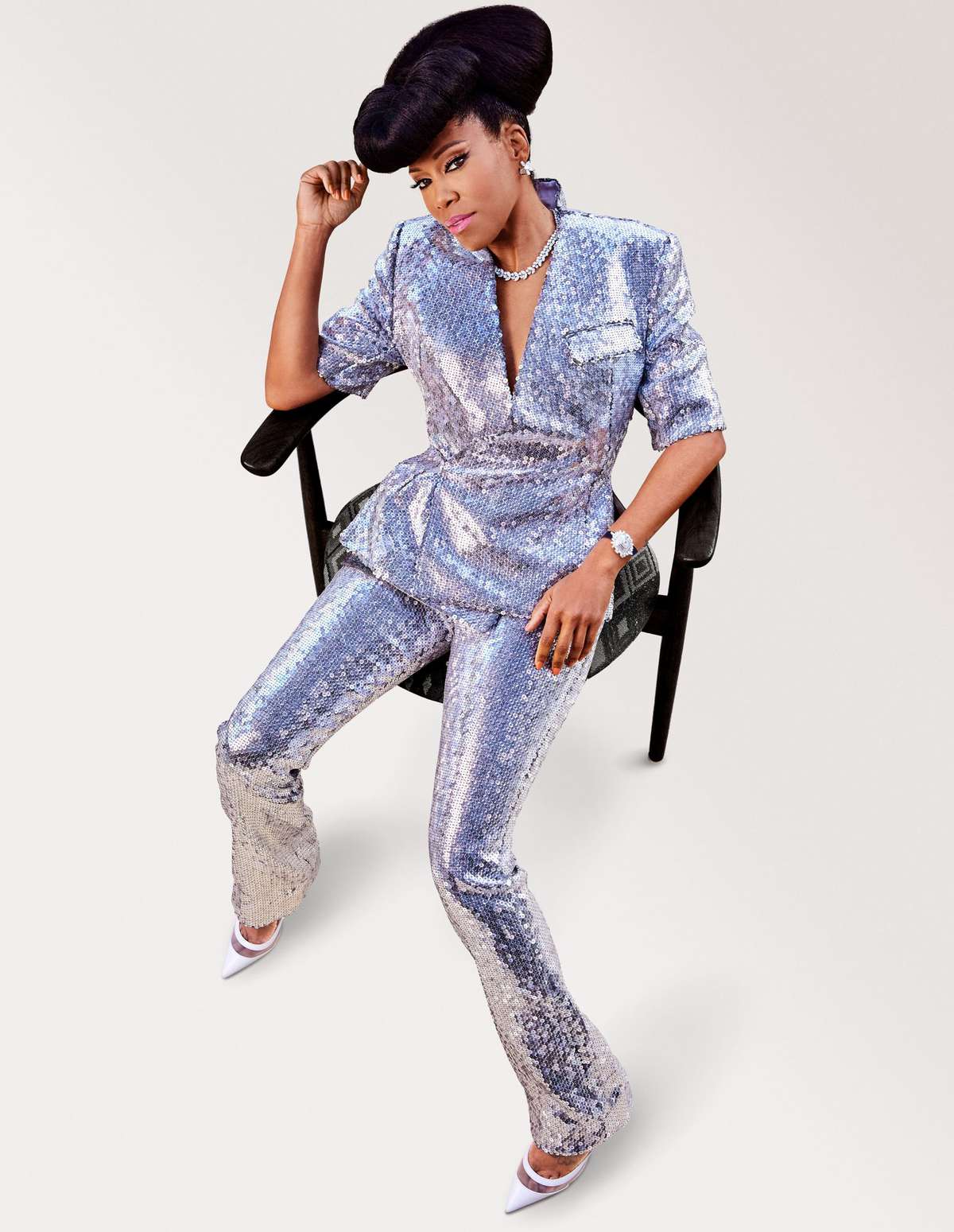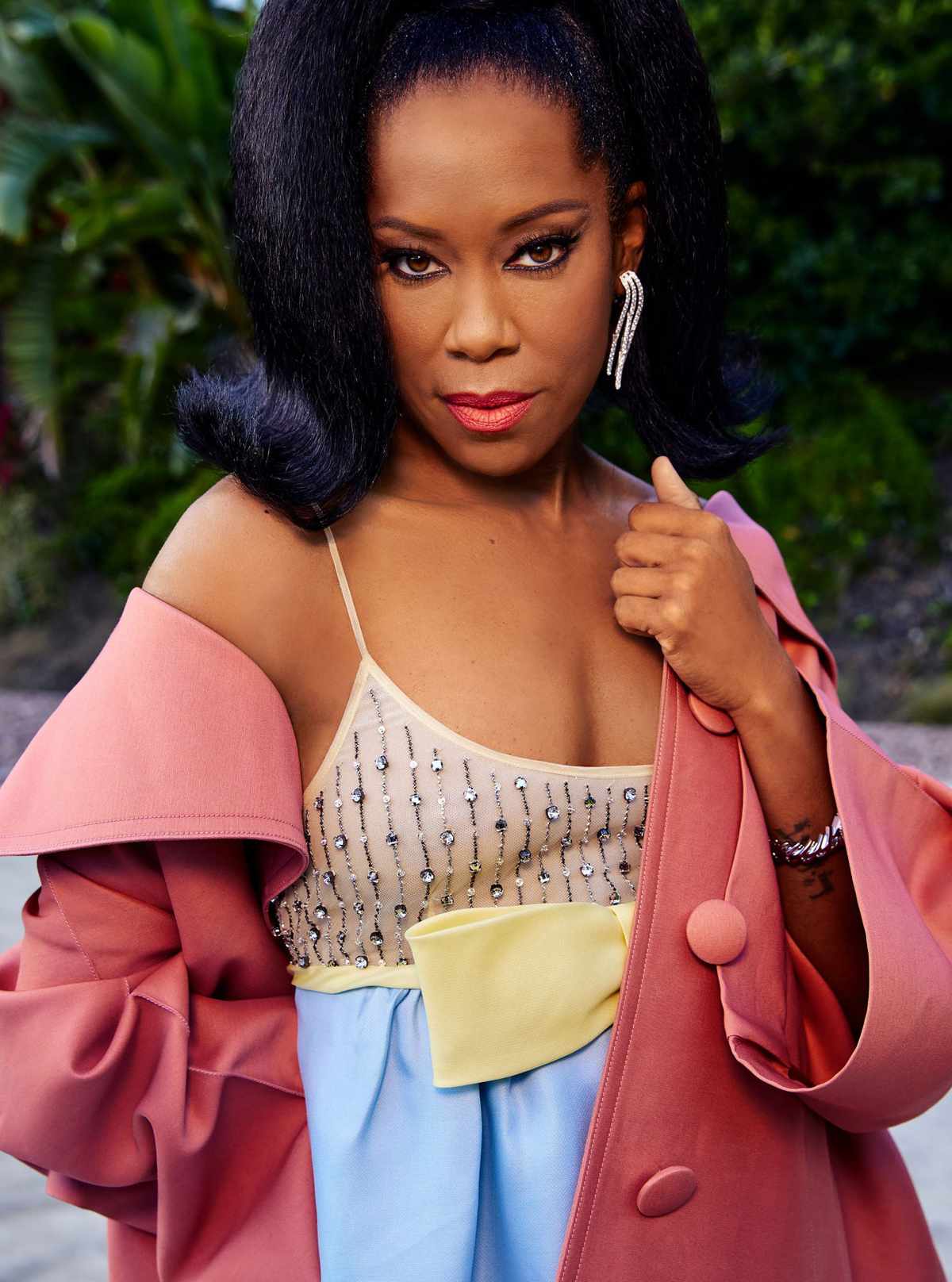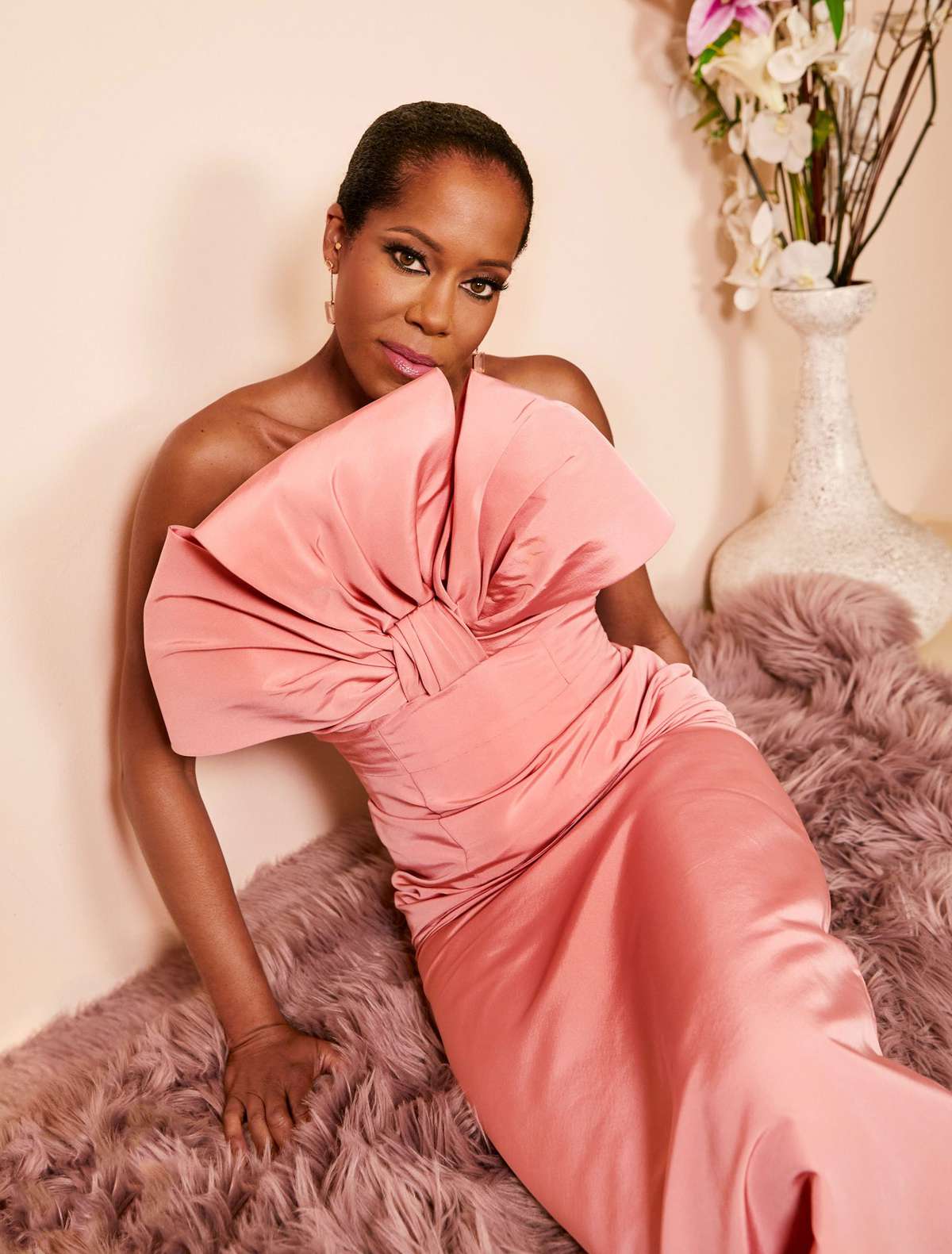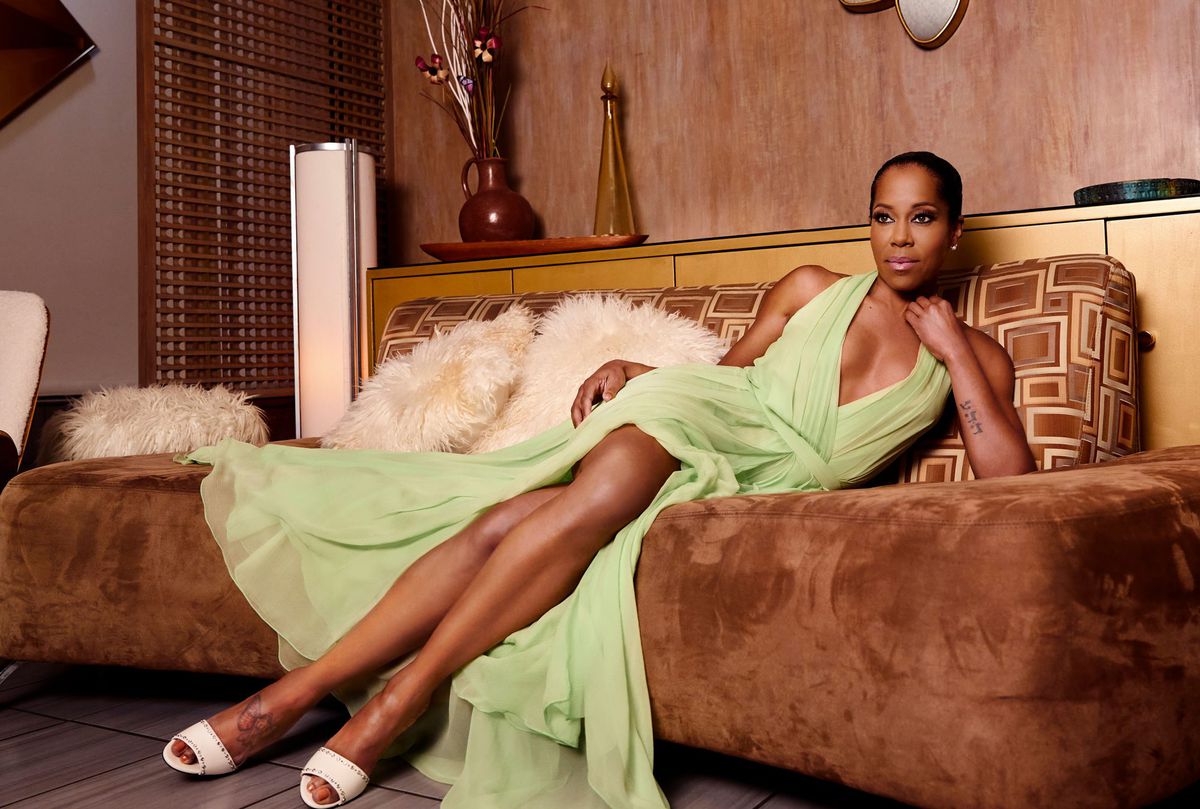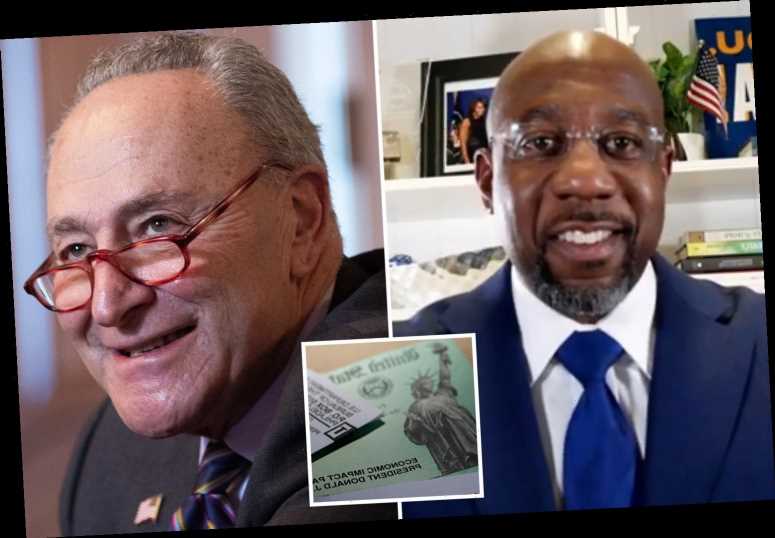Regina King was looking for her Titanic. After three decades in Hollywood as an actress, starting with her child-star beginnings on the sitcom 227, King felt ready to move behind the camera, to direct her first feature film. She'd helmed episodes of television (Scandal, Insecure, Being Mary Jane), but directing TV is a little bit like being a day player, where you parachute onto a set to execute the showrunner's vision. King asked her agents to find a script for her: "I told them I would love to do a film that was a love story with a historical backdrop, like a Titanic," she says. "I feel that with Black people, stories like that are few and far between."
We're talking over Zoom on a December afternoon. King is dressed casually in a hoodie and big silver hoops, her hair tucked under a head wrap. She's currently in Santa Fe, a city she describes as "having more sunny days than L.A.," where she's from and has never left. "I'm really a sneaker type of chick," she explains. The red-carpet glam — the white Oscar de la Renta gown she wore to accept her best supporting actress Oscar in 2019; the pillowy cobalt blue Schiaparelli Couture gown that she slipped on before last year's virtual Emmys, where she took home a trophy for Watchmen — comes courtesy of her stylists Wayman and Micah, who jokingly refer to fashion as "fash." ("They just created a space for me to make a story out of the fashion, and I've never looked at it that way before," King says in maybe the most director's-eye approach to personal style ever.) In real life, she prefers to look like this: dressed down with a wrap on.
As clear as King was about looking for a script that was big and romantic, her agents sent her something else: One Night in Miami. Based on a play by Kemp Powers, the adaptation fictionalized a real-life meeting of the minds–cum–hangout session that happened the night of February 25, 1964, between Malcolm X, Muhammad Ali (then still using the name Cassius Clay), Sam Cooke, and Jim Brown. Over the course of the movie's two hours, the men laugh and fuss, pace around their hotel room, drink, chill. It's not the big, loud, "I'll never let go, Jack" epic King had in mind, but One Night in Miami finds its own romance as an intimate character study of four young Black men and their ambitions, doubts, and dreams. With humor and urgency, they talk through the symbiotic relationship between art, athletics, and activism; they're trying to figure out how to be Black and famous and principled, how to be Black and alive. King was drawn to the potency of their debates: "It really humanized them. I feel like we don't get the opportunity to see Black men like this, and most of us have Black men who are this layered in our lives, who have this much love and strength and vulnerability, all of those things, in one."
The thrill of One Night in Miami is how realistically, and casually, the four men are rendered by King's direction: Cooke and X trade verbal jabs over how to harness Black power; Brown huffs about Hollywood and wanting to get laid; Ali is boyishly playful and confused. It also doesn't hurt that King has assembled the most handsome cast of any movie released this season. When I bring it to her attention, she cackles and promises that it wasn't intentional. There were actors who wouldn't audition for her, she says, but she was more than satisfied with her eventual quartet: Kingsley Ben-Adir, Eli Goree, Leslie Odom Jr., and Aldis Hodge.
"I want every Black man I know and love to see themselves in this film because I saw them when I read the script," she says. King wanted to mine these men's certainties and insecurities, how nervous they were about making mistakes. "Some could look at [those themes] as subtleties, but they are the big-ticket items I want people to leave with," she continues. "That nobody is perfect, and we are just trying to do our best. While these men are legendary, they were trying to do their best. It's as simple as that."
That idea of just trying to do your best has served King well in her career. Her first movie was Boyz n the Hood; her second was Poetic Justice. For the past two years she's been awards-show catnip, collecting a trove of well-earned golden statuettes. In between she's led a police procedural in Southland, voiced The Boondocks' leading pair of brothers, and played Hilary Duff's A Cinderella Story fairy godmother. Last year Watchmen made her a superhero. King's versatility is beyond chameleonic; she can just do it all, and usually all at the same time. What's more, she's endeared herself to fans of every genre, platform, and project: Few careers encompass both rom-com confections like Miss Congeniality and Jerry Maguire and emotionally wrought dramas like The Leftovers and Seven Seconds. She brushes it off when I mention this skill: "You might talk to somebody else, and they say, 'Regina who?' " (No one is ever saying this.)
Despite celebrating the most successful year of her career, King feels like a live wire, still raw from living with the pandemic, so many losses, and last summer's racial justice protests. "I'm still in a place of, 'Fuck. We lost Kobe and Chadwick. And we had an election!' My mind is exhausted," she says. "What I'm doing to get through it is just being honest about that. I'm having moments when I feel like it is really hard to be optimistic, so I'm sharing that with friends and family. I have those women who help prop me up when I'm feeling like, 'I don't know about you guys, but I think this is Armageddon. I don't know how to get through this.'"
But if there's one thing we know about King, it's that get through this she will. Her slow and steady rise in Hollywood, where the glare of attention comes and goes, especially for Black actors, was deliberate and intentional. Her credo? "Whatever is successful is for that artist. What works for me doesn't work for Meryl." King laughs. "What works for me is that I am not making lateral moves, that I am on an upward trajectory. A lot of this I'm discovering along the way, but I am not compromising my integrity. I'm always continuing to dream."
There's one dream in particular that King is still hoping to realize. At the 2019 Golden Globes, in a glimmering taffy-colored Alberta Ferretti dress, she scooped up a trophy for her performance in If Beale Street Could Talk. Onstage, she made a declaration: "I am going to use my platform to say right now that in the next two years, everything that I produce — and I am making a vow, and it's going to be tough — to make sure that everything that I produce, that it's 50 percent women," she said. The room erupted in applause.
It turned out to be easier said than done on One Night in Miami. Reflecting on her speech today, King is honest about the unexpected difficulties she encountered in achieving parity. She doesn't seem embarrassed, but she's clearly disappointed. "I'm sure in some publications or in some people's eyes it's going to be perceived as I didn't try to achieve that [gender parity]," she begins. "I was talking to one of my good friends, and I was telling her I was kind of down on myself about not being able to. Then I told her about the diversity of our crew, and she was like, 'Well, shit, girl, that's something! You gotta talk about that!'"
In last August's Badass issue, King described the time when she and her son, Ian, jumped off a cliff on vacation in Hawaii. Now 50 and with her feature-film directorial début having arrived to major acclaim, King doesn't feel like she has any notable regrets — precisely the quality she thinks makes a badass, after all. "I think a badass is someone who beats to the tune of their own drum. It's a person who takes risks."
I ask her if directing a movie is the biggest risk she's ever taken. One Night in Miami is certainly an achievement. The performances crackle; the filmmaking doesn't overpower the characters; Odom Jr. ends the movie with a deeply moving rendition of "A Change Is Gonna Come." Hearing that song after the unchecked chaos of 2020 feels uniquely cathartic.
But King says no and then thinks for a moment. "I'm sure if I sat here and thought about it, I could think of others, but what comes to mind is that the biggest risk I took career-wise was not to take any jobs outside of L.A. when Ian was about 9 years old." When he was younger, he'd travel with his mom from set to set. "I wanted to stay home and ensure that I was not going to miss games, miss watching him grow. I think that was a risk. I know it was a risk because of the reaction of my agents when I said that." But they kept rocking with her, and she kept rocking with them — they were the same team that helped her dream up One Night in Miami a decade and a half later.
As we say our goodbyes, it becomes obvious why King — the mom, the director, the actor who is running a marathon, not a sprint — has had the success she's had. She doesn't miss a beat. "If you need any follow-up, definitely we can have another quick call," she says. "Because you and I both want it to be right. Both of our names are on this."
Photographed by Christian Cody; styling: Wayman + Micah; hair: Larry Sims/Forward Artists; makeup: Latrice Johnson; manicure: Jessica Lee; production: Kelsey Stevens Productions.
For more stories like this, pick up the February 2021 issue of InStyle, available on newsstands, on Amazon, and for digital download Jan. 15.
Source: Read Full Article


